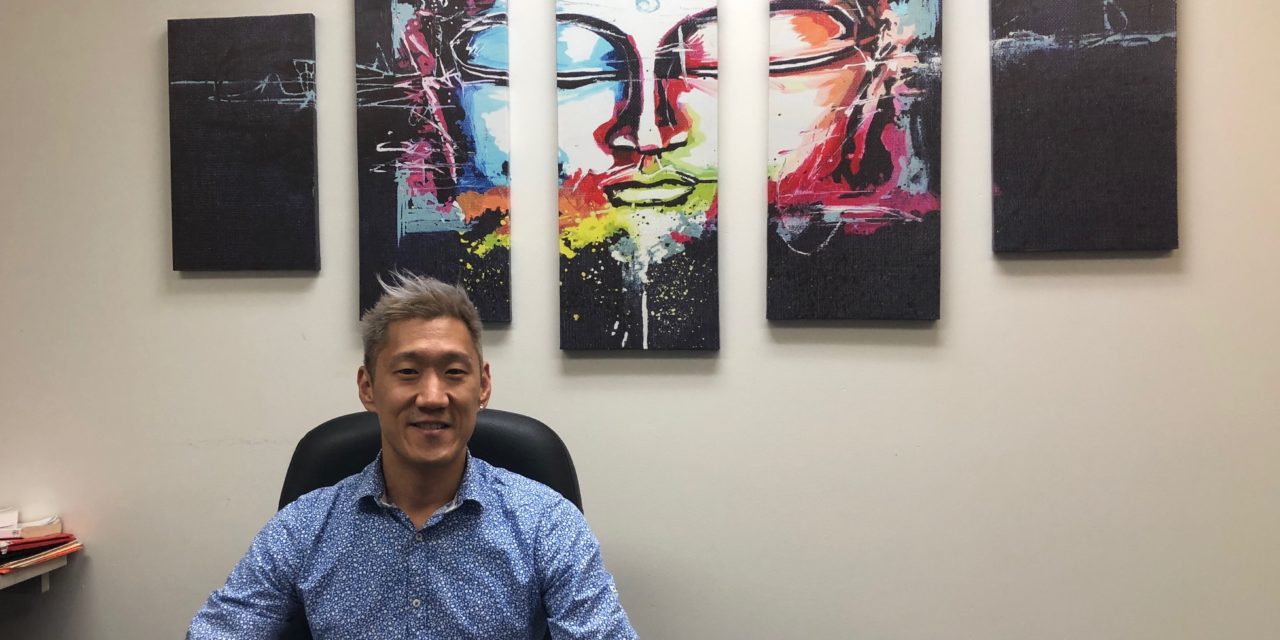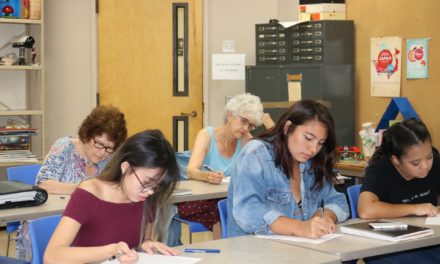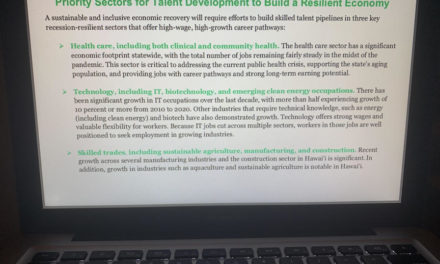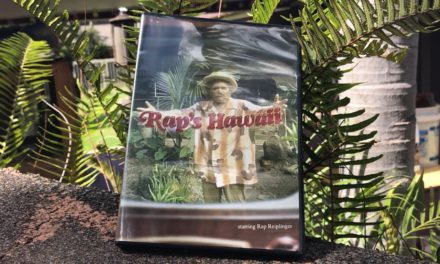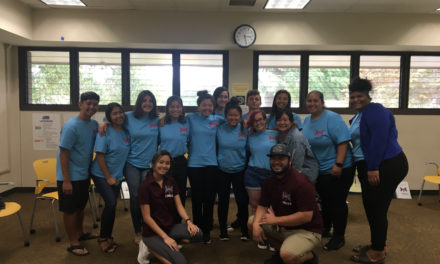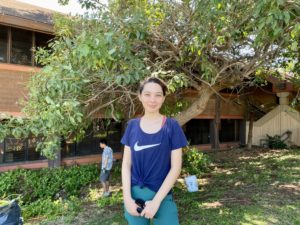By Katlin Cilliers | Staff Writer
Student veterans at Kapiʻolani Community College now have one more resource available to them at the Veteran & Military Resource Center. Dr. Jonathan Mueller started in January at KCC as a clinical psychologist and LGBT care coordinator for the Veterans’ Affairs office in the Pacific Islands. He is available by appointment at ʻIliahi 112.
Mueller’s main goal at KCC is to act as a liaison between the VA, student veterans and professors, helping them cater to those students’ specific, unique needs so that they thrive academically. As part of this project, Mueller will offer individual and couple’s therapy, psychological assessments and, if there’s interest on campus, he’ll start groups for mindfulness and trauma processing.
“They’ve lived in the military culture for so long, that it can be difficult to adjust to being around civilians that don’t all operate the same way, right?” Mueller said.
Mueller addressed the stigma that usually surrounds trauma, PTSD and prejudice toward military veterans, the LGBT population, and those who identify as part of that minority within the military. Regardless of how serious someone’s difficulties may seem, he said there shouldn’t be any shame in talking about it.
To him, the VA has been effective in identifying and offering solutions for these issues. Every facility working with veterans now has a LGBT Veteran Care Coordinator who’s responsible for addressing issues with prejudice or stigma, from staff members to fellow veterans. The coordinator also provides workers with LGBT training and consultations, aimed at raising awareness and promoting inclusion.
“I really appreciate that the VA has policies about inclusion and diversity,” the psychologist said. “So [now there are] national policies on how to provide care to transgender veterans, for example. And they just updated this policy in 2018. … That’s what I’d like to see, and that’s something I hope continues.”
In March 2018, the Trump administration announced its intention to implement a policy that would ultimately discriminate against transgender serving in the military. Nearly a year later, the Supreme Court ruled in favor of the policy. On January 22, CNN reported that the ban “blocks individuals who have been diagnosed with a condition known as gender dysphoria from serving, with limited exceptions.“
Mueller keeps an open-door policy, inviting student veterans to approach their difficulties as something that is a natural result of being exposed to traumatic situations.
“Anyone can benefit from talking to someone else, right? Everyone gets stressed,” he said. “Therapy is nothing to be ashamed about, because it’s something that every single person could benefit from. Myself included, like, talking to someone else and just having someone to bounce ideas off and make sense of things, and work through difficulties … helps.”
Mueller said he wanted to advocate for the LGBT, but he doesn’t recall an exact moment when he made that decision. It happened organically, as he grew aware of the micro-aggressions experienced by that minority. He’s also experienced much of that stress himself, as he identifies as part of the population.
The clinical psychologist shared that he’s usually gravitated toward the “free-spirited, open, liberal communities with progressive values,” so working with minorities seemed like a natural step to take in his career. He trained at the VA in Palo Alto in 2012 and then in Los Angeles in 2014.
During his time in Los Angeles, he began to look for post-doctoral fellowships, and learned that the VA had a new program: a veteran LGBT fellowship, which was a way for him to combine both interests.
He successfully applied for the program and trained as a resident for one year. Mueller moved to San Diego, and there he became the first LGBT veterans’ emphasis resident at that VA facility. When that was up, it was time to move again.
Such transience has been taxing in Mueller’s social and personal life. In the span of five years, he’s lived in “pretty much ever major city on the west coast,” he said.
As of January this year, Mueller took on his new role as a psychologist, this time on Oʻahu. He was received with warmth and aloha at KCC.
“It has been an extremely positive experience,” he said. “I’m so grateful.”

